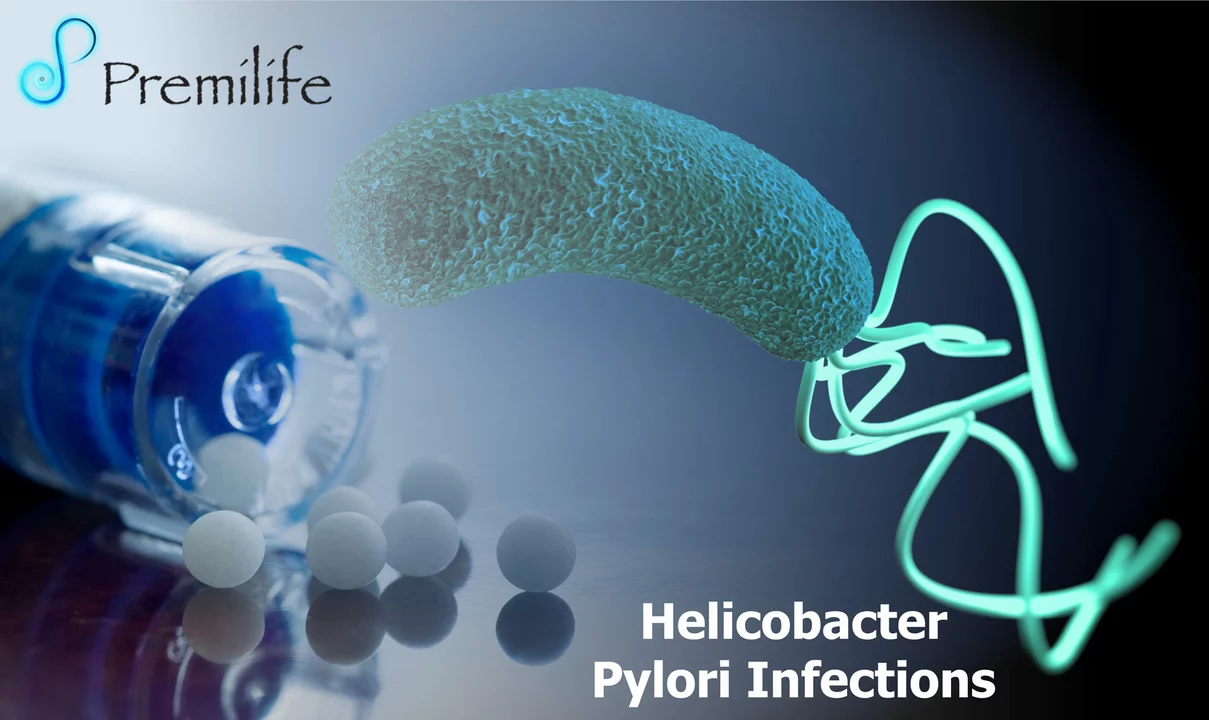Introduction to Sucralfate and Helicobacter Pylori Infection
In recent years, the relationship between sucralfate and Helicobacter pylori infection has become an important topic of discussion in the medical field. Sucralfate is a medication commonly used to treat and prevent ulcers in the stomach and intestines. On the other hand, H. pylori is a type of bacteria that infects the stomach and is a leading cause of ulcers. In this article, we will explore the connection between sucralfate and H. pylori infection, discussing the efficacy of sucralfate in treating this bacterial infection, as well as its potential side effects and interactions with other medications. By understanding this connection, we can better strategize treatments for patients suffering from ulcers caused by H. pylori infection.
Understanding Helicobacter Pylori Infection
Before diving into the connection between sucralfate and H. pylori infection, it is crucial to first understand what H. pylori infection is and how it affects our body. Helicobacter pylori is a type of bacteria that lives in the stomach and can cause inflammation, leading to ulcers in the lining of the stomach or upper small intestine. This infection is quite common, with around half of the world's population being infected by H. pylori.
Although most people with H. pylori infection do not show any symptoms, some may develop signs like abdominal pain, nausea, bloating, and even vomiting. If left untreated, the infection can lead to complications such as peptic ulcers, gastritis, and even stomach cancer. Therefore, it is essential to diagnose and treat H. pylori infection promptly to prevent further complications.
How Sucralfate Works
Sucralfate is a medication that works by forming a protective barrier over ulcers, allowing the body to heal them more effectively. It binds to proteins and other substances in the stomach, creating a paste-like substance that adheres to the ulcer surface, shielding it from further damage caused by stomach acid and digestive enzymes.
While sucralfate is not an antibiotic and does not directly kill H. pylori bacteria, it can support the healing process of ulcers caused by this infection. As a result, sucralfate is often prescribed alongside antibiotics and other medications to treat H. pylori-induced ulcers and reduce the risk of recurrence.
The Efficacy of Sucralfate in Treating H. Pylori Infection
Several studies have investigated the effectiveness of sucralfate in treating H. pylori infection and its associated ulcers. While some research has shown that sucralfate can help alleviate symptoms and promote ulcer healing, its efficacy in eradicating H. pylori is still debated.
Most medical professionals agree that sucralfate should not be used as a standalone treatment for H. pylori infection. Antibiotics, such as amoxicillin and clarithromycin, are usually prescribed alongside sucralfate to target the bacteria directly. In some cases, a proton pump inhibitor (PPI) may also be included in the treatment regimen to reduce stomach acid production and promote ulcer healing.
Potential Side Effects of Sucralfate
While sucralfate is generally considered safe for most patients, it can cause some side effects. Common side effects of sucralfate include constipation, diarrhea, nausea, and stomach cramps. These side effects are usually mild and subside as the body adjusts to the medication.
However, if you experience severe or persistent side effects, it is essential to consult your healthcare provider immediately. In rare cases, sucralfate can cause more serious side effects, such as an allergic reaction, difficulty breathing, or swelling of the face, lips, or tongue. If you experience any of these symptoms, seek medical attention right away.
Interactions with Other Medications
When taking sucralfate, it is important to be aware of its potential interactions with other medications. Sucralfate can bind to certain medications in the stomach, reducing their absorption and effectiveness. Some of the medications that may interact with sucralfate include antacids, antibiotics, blood thinners, and digoxin.
To minimize the risk of interactions, it is essential to inform your healthcare provider about all the medications and supplements you are currently taking before starting sucralfate. Your doctor may adjust the dosages or recommend alternative medications to avoid potential interactions and ensure the best possible treatment outcome.
Conclusion
In conclusion, sucralfate can play a supportive role in the treatment of H. pylori infection and its associated ulcers. While it may not directly kill the bacteria, it helps protect and heal ulcers, providing relief from symptoms and reducing the risk of recurrence. However, sucralfate should not be used as a standalone treatment, and it is essential to combine it with antibiotics and other medications to effectively eradicate H. pylori.
By understanding the connection between sucralfate and H. pylori infection, patients and healthcare providers can better strategize treatment plans, leading to improved patient outcomes and a reduced risk of complications.




